The most intriguing and in-depth reads on energy. For full reviews, visit www.econpwr.com
1
As the best books on Climate Change Innovation noted, “Vaclav Smil is one of the world’s leading figures on energy.” Indeed, his eminence earns him a double mention on this list. Energy is complex subject. Accordingly, most readers would benefit greatly from a primer on the fundamentals. This book explores those essentials, highlights the historical importance of energy, and sets the stage for a deeper investigation. And at a trim 200 pages, it is easily the most accessible way to engage with Smil.
2
Energy is humanity’s ultimate obstacle—and also its most promising opportunity. Such high stakes set the stage for Michael E. Webber’s latest book, Power Trip: The Story of Energy. Webber takes a systematic approach to this sprawling subject and explores the role of energy in six thematic chapters ranging from wealth and water to cities and transportation. Insights abound, but perhaps the most important argument Webber makes deals with decarbonization. Echoing other energy experts, Webber asserts that it is, perhaps, the defining challenge of the twenty-first century. A bold claim, surely, but one backed up with logic: If energy is our most profound problem, and decarbonization is energy’s defining challenge—that would make decarbonization our biggest problem’s biggest problem.
3
According to Richard Rhodes, the Pulitzer Prize-winning author and historian, there is a lacuna in our approach to energy. Specifically, “The current debate has hardly explored the rich human history behind today’s energy challenges.” This book was written, in part, to overcome that lack of humanity — and it succeeds. Rhodes is at his best covering the sweeping changes that the energy industry has seen over the centuries. He traces the evolution of energy from its humble origins in wood-burning Elizabethan England to its emergence as the master resource of the 21st century.
4
“Human history can be divided into two epochs, the Electric Age, and everything that came before it.” At least according to A Question of Power, the latest book by Robert Bryce. Bryce argues that the Electric Age ushered in an unprecedented period of prosperity and human flourishing. Yet as the introduction notes, “We seldom think about the relationship between electric power and human empowerment.” Fortunately for us, this book provides an antidote to such ignorance.
5
The work of Vaclav Smil attracts descriptors ranging from “dense” to “magisterial.” To this list, add another: Encyclopedic. Overall, Growth is a story of irreconcilable conflict. In the beginning, Smil assured us his careful, fact-based approach would lead only to “cautious conclusions” and that “This book makes no radical claims of any kind.” And yet, he concludes by arguing that continuous growth is “impossible” and doing more with less “cannot remove this constraint.” Further, he says we must take a “radical departure” from the status quo in order to avoid catastrophe. Ultimately, while the book may be dense and dry at times, it is also an authoritative analysis of the most essential economic topic. As Chris Goodall concluded, “He is extremely scholarly; there isn’t a page you don’t learn something from.”
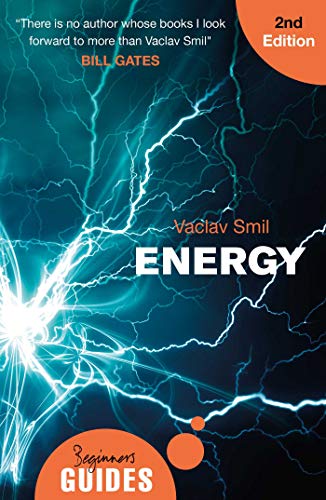
1
As the best books on Climate Change Innovation noted, “Vaclav Smil is one of the world’s leading figures on energy.” Indeed, his eminence earns him a double mention on this list. Energy is complex subject. Accordingly, most readers would benefit greatly from a primer on the fundamentals. This book explores those essentials, highlights the historical importance of energy, and sets the stage for a deeper investigation. And at a trim 200 pages, it is easily the most accessible way to engage with Smil.
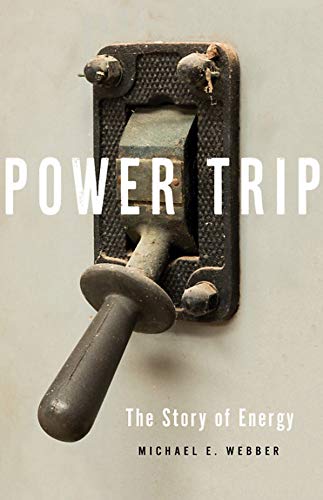
2
Energy is humanity’s ultimate obstacle—and also its most promising opportunity. Such high stakes set the stage for Michael E. Webber’s latest book, Power Trip: The Story of Energy. Webber takes a systematic approach to this sprawling subject and explores the role of energy in six thematic chapters ranging from wealth and water to cities and transportation. Insights abound, but perhaps the most important argument Webber makes deals with decarbonization. Echoing other energy experts, Webber asserts that it is, perhaps, the defining challenge of the twenty-first century. A bold claim, surely, but one backed up with logic: If energy is our most profound problem, and decarbonization is energy’s defining challenge—that would make decarbonization our biggest problem’s biggest problem.
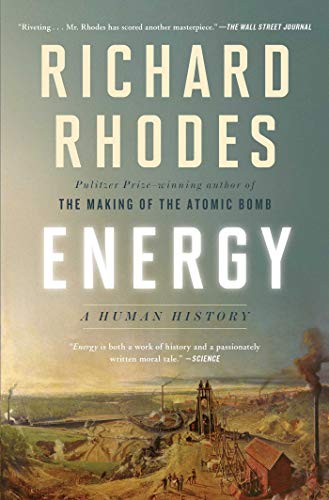
3
According to Richard Rhodes, the Pulitzer Prize-winning author and historian, there is a lacuna in our approach to energy. Specifically, “The current debate has hardly explored the rich human history behind today’s energy challenges.” This book was written, in part, to overcome that lack of humanity — and it succeeds. Rhodes is at his best covering the sweeping changes that the energy industry has seen over the centuries. He traces the evolution of energy from its humble origins in wood-burning Elizabethan England to its emergence as the master resource of the 21st century.
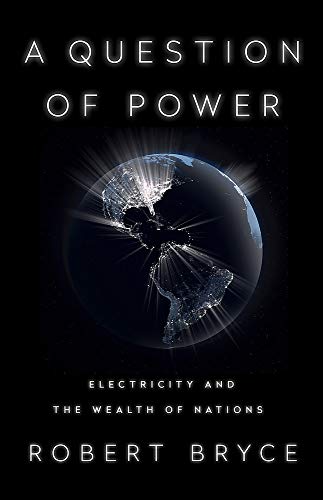
4
“Human history can be divided into two epochs, the Electric Age, and everything that came before it.” At least according to A Question of Power, the latest book by Robert Bryce. Bryce argues that the Electric Age ushered in an unprecedented period of prosperity and human flourishing. Yet as the introduction notes, “We seldom think about the relationship between electric power and human empowerment.” Fortunately for us, this book provides an antidote to such ignorance.
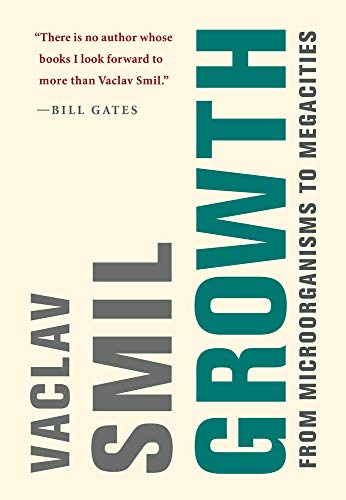
5
The work of Vaclav Smil attracts descriptors ranging from “dense” to “magisterial.” To this list, add another: Encyclopedic. Overall, Growth is a story of irreconcilable conflict. In the beginning, Smil assured us his careful, fact-based approach would lead only to “cautious conclusions” and that “This book makes no radical claims of any kind.” And yet, he concludes by arguing that continuous growth is “impossible” and doing more with less “cannot remove this constraint.” Further, he says we must take a “radical departure” from the status quo in order to avoid catastrophe. Ultimately, while the book may be dense and dry at times, it is also an authoritative analysis of the most essential economic topic. As Chris Goodall concluded, “He is extremely scholarly; there isn’t a page you don’t learn something from.”
© Five Books 2026